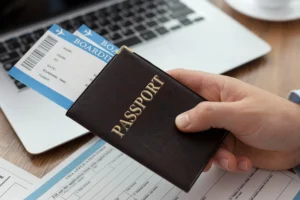Construction Permits and Bureaucratic Traps: How Can Businesses Survive?
Navigating the construction permit process is often likened to traversing a labyrinth of bureaucratic red tape. While permits are necessary to ensure safety, compliance, and environmental protection, the procedures involved can be overwhelming, especially for businesses looking to start or expand operations. This article delves into the challenges of obtaining construction permits, common bureaucratic traps, and strategies businesses can adopt to overcome these hurdles.
The Importance of Construction Permits
Construction permits are legal authorizations required to initiate building projects. They serve several purposes, including:
- Safety Compliance: Ensuring buildings meet safety standards to protect occupants and workers.
- Environmental Protection: Verifying that projects adhere to environmental regulations.
- Zoning and Land Use: Confirming that proposed developments align with zoning laws and land-use plans.
- Regulatory Accountability: Providing governments with oversight to prevent unregulated or illegal constructions.
Bureaucratic Challenges in the Permit Process
While the importance of permits is unquestionable, the process to obtain them is fraught with challenges. Key issues include:
1. Complex and Lengthy Procedures
The permit application process often involves multiple agencies, extensive documentation, and prolonged waiting periods. For instance:
- Businesses may need to obtain separate permits for zoning, construction, environmental impact, and fire safety.
- Delays in one department can cascade, stalling the entire project timeline.
2. Inconsistent Regulations
Regulatory requirements often vary between regions and municipalities, making it difficult for businesses operating in multiple locations to standardize their processes. Ambiguities in local laws can further complicate compliance efforts.
3. Corruption and Informal Fees
In some jurisdictions, businesses encounter demands for unofficial payments or bribes to expedite the permit process. This not only increases costs but also exposes companies to legal and reputational risks.
4. Lack of Transparency
Many businesses struggle with limited access to clear guidelines or status updates during the permit process. This opacity can lead to unnecessary delays and frustration.
Strategies for Overcoming Bureaucratic Traps
Despite these challenges, businesses can adopt proactive measures to navigate the permit process effectively:
1. Conduct Thorough Research
Before initiating a project, businesses should:
- Understand local regulations and permit requirements.
- Identify the relevant authorities and their specific processes.
- Consult with legal experts or local consultants to gain clarity.
2. Streamline Documentation
Proper organization of documents can significantly reduce delays. Ensure that applications include all required information, such as:
- Architectural plans and designs.
- Environmental impact assessments.
- Proof of ownership or land-use agreements.
- Compliance certifications for zoning or fire safety.
3. Leverage Digital Tools
In regions where e-permitting systems are available, businesses should utilize them to:
- Submit applications online.
- Track application status in real time.
- Reduce physical interactions and paperwork.
4. Engage with Local Authorities
Building positive relationships with local authorities can facilitate smoother communication. Businesses should:
- Attend public consultations or hearings related to their projects.
- Seek guidance from officials on navigating the process.
- Maintain a professional and respectful approach to foster trust.
5. Hire a Permit Consultant
Specialized consultants or firms can help manage the permit process. Their expertise in local regulations and relationships with authorities can expedite approvals and minimize errors.
6. Advocate for Policy Reforms
Businesses operating in challenging regulatory environments can collaborate with industry associations to advocate for:
- Simplified and unified permit processes.
- Greater transparency through clear guidelines and timelines.
- Anti-corruption measures to eliminate informal fees.
Case Studies: Success Amid Bureaucratic Challenges
Example 1: Streamlining Through Technology
In Singapore, the Building and Construction Authority (BCA) has implemented an online platform that integrates multiple agencies involved in the permit process. This system has reduced approval times by up to 50%, showcasing the impact of digital solutions.
Example 2: Collaboration with Authorities
A multinational company operating in Indonesia successfully navigated complex local regulations by engaging with local consultants and establishing a dedicated compliance team. By maintaining regular communication with government officials, the company secured permits without significant delays.
Balancing Compliance and Business Goals
While the permit process may seem burdensome, it is essential for maintaining safety, legality, and accountability. By adopting strategic approaches and leveraging available resources, businesses can minimize delays, reduce costs, and maintain project timelines.
Conclusion
Securing construction permits is a critical yet challenging step for businesses. Bureaucratic traps such as complex regulations, corruption, and lack of transparency can hinder progress, but proactive measures like thorough research, streamlined documentation, and digital tools can make a significant difference. Businesses that approach the process strategically and advocate for systemic reforms can transform this challenge into an opportunity for growth and compliance.
By viewing construction permits not just as an obligation but as a foundation for sustainable and compliant development, businesses can ensure their projects thrive in any regulatory environment.
Still confused about Construction Permit?
Click the tombol on the right to Ask the Documenta Team











